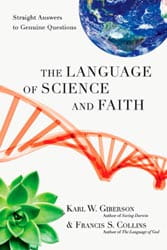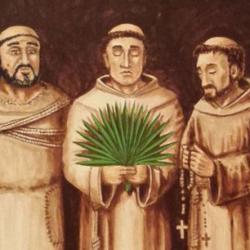 Chapter 3
Chapter 3
How Do We Relate science and Religion?
And God said, "Let there be light," and there was light.
Genesis 1:3
Science and theology have things to say to each other since both are concerned with the search for truth attained through motivated belief.
John Polkinghorne
The Christian tradition has always engaged the secular culture. As early as the first century we find St. Paul, in his famous Mars Hill sermon, relating his message to local Greek philosophy. Early church fathers like Origen constantly borrowed secular concepts and ideas to illuminate and extend the Christian message. Augustine's classic City of God was a profound meditation on the relation between the kingdom of God and the secular world (city of man). Aquinas's Summa Theologica was a medieval integration of Christianity with newly arrived secular Greek philosophy.
This task, particularly in the work of Aquinas, demanded a familiarity with prevailing understandings of the natural world as articulated in the natural philosophy of the day. By the nineteenth century the exploration of nature would come to be called "science," but these earlier generations of thinkers did not perceive the investigation of nature as fundamentally different than the investigation of any other area of knowledge. They assumed knowledge was a seamless whole and everything related to everything else, with revealed knowledge—revelation—functioning as the primary foundation on which reflection would take place. For thinkers like Aquinas, theology was the "queen of the sciences."
In this chapter we consider the animated conversation between science and religion as it occurs today. Our considerations will be informed by the history of this conversation, of course, but we must keep in mind that religion and science were not distinct categories of knowledge in the past. The modern compartmentalization of knowledge would seem inadequate and even peculiar to many thinkers from the past.
Do Science and Religion Have to Overlap?
We start by recognizing that most of science does not connect in any meaningful way to most of religion. The (mis)perception that science and religion constantly engage each other is created by a media in love with conflict. Every time a controversy erupts over evolution, stem cells, genetics or cosmology, the media reports that science is once again challenging religion. In such stories science is advancing in its usual way by discovering new knowledge and religion is responding in its usual way by being defensive, reactionary and protective of insights from the past. This is a misleading picture. The thousands of scientific journals that report the work of the scientific community are filled with obscure discoveries that have no meaningful connection of any sort to religion and are blissfully ignored by the media and most everyone else.
In such journals we read of new measurements of the speed of light or the mass of elementary particles, determined with new levels of precision. We read of new insights into the causes of various diseases, the ongoing advance of nanotechnology or the origin of interesting geological features on the earth and other bodies in our solar system. It is all but impossible to relate such knowledge to religion and no effort need be expended trying to do so for there is simply no point. Furthermore, the Bible is completely silent on topics like these and many others.
Christians explore these and most other scientific topics without worrying about faith implications. On some subjects, of course, the Bible does make casual, sometimes literary, reference to the natural world, such as when God is connected to thunder, whirlwinds, clouds, green pastures and lions. Such allusions also occasion no worry.
But sometimes the Bible speaks with reasonable clarity about the natural world, and it is here that problems arise. In Psalm 93 we read: "The world is firmly established; it cannot be moved." This is not a passage readily dismissed as a literary device, and in fact, it occasioned great consternation in the seventeenth century when Galileo tried to convince his fellow Christians that the earth was not fixed but moved around the sun. Galileo, in the tradition of Augustine and Aquinas, struggled to reconcile the new astronomy with this venerable biblical assurance that the earth did not move. He famously quipped, "The Bible teaches us how to go to heaven, not how the heavens go," anticipating the point we made earlier, that science and religion can often avoid conflict by simply keeping them separate.
Galileo's task in the seventeenth century was like ours in the twenty-first, except we wrestle with new topics like biological evolution and the big bang, not the motion of the earth. The simple "science and religion are independent" formula, however, did not work for Galileo in his day, although thoughtful Christians today have learned to be careful not to treat Bible verses as scientific statements.




